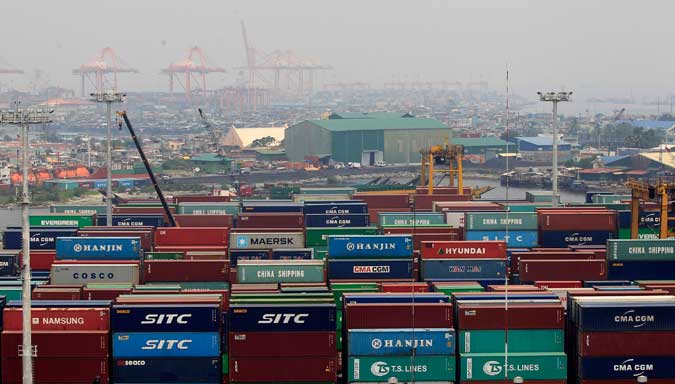Exporters call for changes to PHL shipping rules

Exporters and logistics groups are proposing longer-term changes to Philippine shipping rules to allow domestic ships to carry out international trade.
Royal Cargo, Inc. subsidiary Iris Logistics, Inc. will soon transport containers carrying export products to the United States amid a global container shortage that has led exporters to flag logistics delays and higher freight costs.
Local exporters have not been able to book slots on international container lines, leading them to tap domestic ships.
Philippine Exporters Confederation, Inc. (Philexport) in a statement Friday said that the industry group has been working with the Networking Committee on Transportation and Logistics of the Export Development Council and Royal Cargo to address the capacity issues.
“As part of the intervention, the three groups agreed to propose to government to allow domestic shipping lines to operate beyond domestic waters. Royal Cargo agreed to help by providing its ships to transport export cargoes to their ports of destination,” Philexport said.
For the long term, the groups are supporting the passage of the Philippine Ship Registry Act, which would incentivize ship registry, to enable Philippine flag vessels to transport goods internationally.
They are also campaigning for regulation changes, asking to remove the distinction between “coastwise license” and “international license” among Philippine flag ships and for changes to a Maritime Industry Authority circular to recognize Philippine-registered vessels doing both domestic and international trade.
The groups also want Philippine flag ships to be able to carry government cargo imports.
“Issues with supply chain disruptions, not just in the Philippines but around the world, have been intensifying, the result of factors such as a surge in global demand, the early resumption of manufacturing in China, port congestion, and the reduction of capacity by carriers in response to lockdowns,” Philexport said.
Philexport in July said that 80 out of nearly a hundred member-companies that responded to a survey said they were not able to ship goods because of the shortage.
The industry group expects shipment delays to stretch into the Christmas season. — Jenina P. Ibañez



